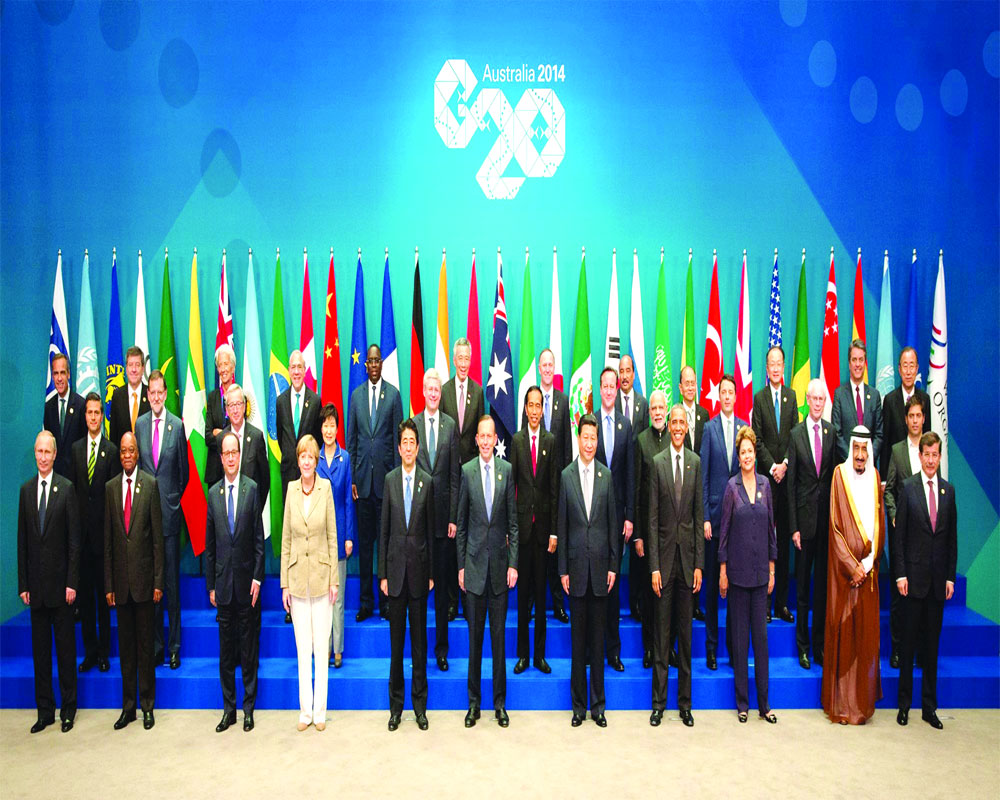Delhi Declaration gave an inclusive and egalitarian vision for combating climate change as it takes into account the local circumstances
India’s G20 presidency slogan of ‘Vasudaviah Kutumbakam’ ‘One Earth One family’ has outlined its commitment towards inclusivity and an equal world for all. The opening of the summit on 9th September 2023 laid down New Delhi Leaders’ Declaration. The chair of the summit; the Prime Minister of India aimed at bridging the trust deficit that has engulfed the whole world that is leading to both man-made and natural calamities that are being faced by different parts of the world. This declaration ingrains the fundamental value of inclusivity that is intrinsic to Indian civilization and has again stressed building consensus that comes through trust.
Amidst the conundrum of the Russia and Ukraine war had seen tense and heated moments that might have led to World War III, bridging of trust deficit is vital for the survival of human beings. This was further attuned when India passed a resolution and admitted the African Union as a permanent member of the G20 forum. This opens up two new vistas in G20 history. First, it wipes out the image that G20 is the forum for the globally rich countries only thereby moving a step towards inclusivity and instilling equality by bridging the north and south divide thereby making the forum G21; secondly, it opens a new chapter of admitting a regional forum in a multilateral organization. In this process, it aims to lessen the trust deficit that is posed by the narrow nationalism of the countries leading to ethnic conflict, especially in Africa. New Delhi’s leaders’ declaration has strongly affirmed strong, sustainable, balanced and inclusive growth for all. It has categorically pointed to at focused commitment to achieving sustainable development goals by all the countries together.
This emphasis has moved away from the north north-south divide and it now focuses on sustained collaborative commitment from the whole world through cultural invigoration to fight the demons of inequality, hunger, health crisis etc. that are plaguing the whole world. The aspect of financial inclusion reiterates its demands for bridging the economic inequality that has infested the world. This is one of the major hindrances that are posed for the slow attainment of sustainable development goals.
The New Delhi leaders’ Declaration has a special mention of the attainment of gender equality and bridging the gender divide. It highlights those sectors where women are either ‘invisible’ or are missing. This declaration has especially focused on bridging the digital divide between men and women. As per the latest report of the International Telecommunication Union, an allied agency of the United Nations, there is a huge digital divide between the two sexes that inhibit women’s financial inclusion and progress. Along with this, there is an increasing stress on mitigating the adverse effect of climate change on women which is in turn affecting their health and nutritional needs. An increase in climate adversities is affecting the rainfall and cropping patterns leading to less production of food grains. As per the report by the United Nations and other researchers soaring prices of food due to less production leads to food insecurity that affects women more than men.
Therefore by highlighting this precarious situation, this declaration has again brought them to the centre stage for policy formulation and inclusion. This declaration has stressed building a multilateral institution by announcing the setting of the ‘Global Bio-fuel alliance’. This alliance is open to all. It aims to adopt a collaborative approach to combat the dependence on fossil fuels and lessen the emissions that are a major factor for climate change.
This endeavour can remove the inhibitions of developing countries who had opposed the targeted emission cuts envisaged in various documents and declarations of climate change. At the same time, it can strategize, plan and collaborate on producing biofuels that can be used for the benefit of the human population. Thus adoption of this declaration has opened new vistas to tackle the climate crisis. This declaration has given the clarion call towards facilitating low-cost alternatives to support the developing countries' smooth transition to alternative energy sources thereby not slowing their development agenda.
There is a stress on combined efforts to ‘triple’ renewable energy sources globally keeping in line with the national circumstances of each country. Thus it is aiming to scale sustainable sources through combined efforts keeping in mind local needs and circumstances. This declaration has outlined the need for $ 5.8-5.9 trillion that is required to meet 2030 targets by developing countries to switch to alternative sources. Thus this declaration calls on collective quantified transparent financial commitment to meet this target. This declaration has therefore been able to identify the main deficit that is plaguing the world’s effort to accelerate its endeavour to attain cooperation in tackling climate change. Taking into consideration the present circumstance this declaration has also asked for co-operation by the whole world keeping in mind their respective local circumstances.
(The writer is an assistant Professor, the Department of Political Science, University of Delhi; views are personal)


























